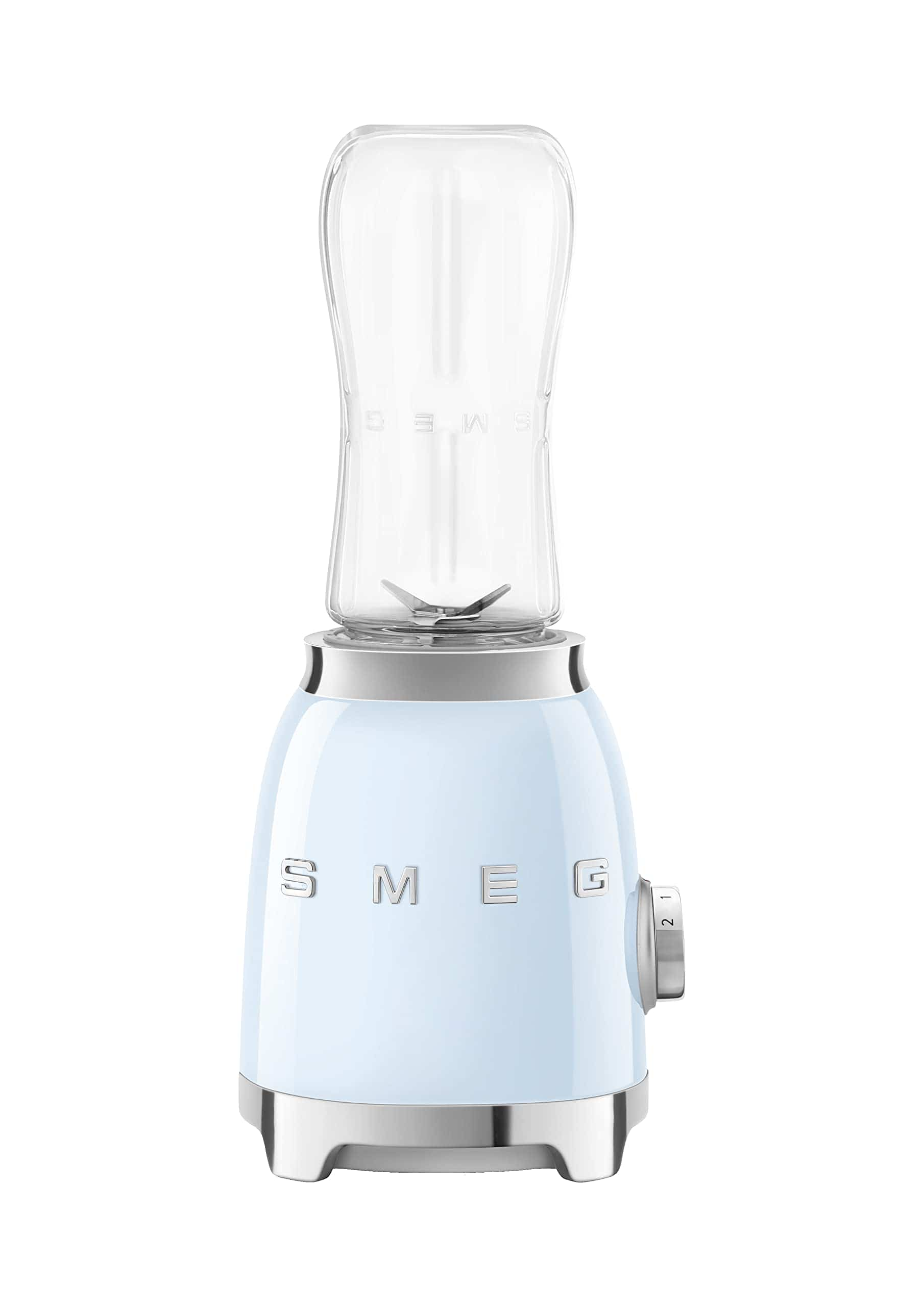Coffee, Tea and Alternatives and Health plus Fitness
Is Turmeric Water Good For PCOS (Polycystic Ovary Syndrome)

When it comes to managing PCOS (Polycystic Ovary Syndrome), finding natural remedies that can help alleviate symptoms is always a welcome discovery. One such remedy that has gained popularity is turmeric water. But does it really live up to its hype? Let’s dive in and explore the potential benefits of turmeric water for PCOS.
As they say, ‘an apple a day keeps the doctor away,’ and turmeric water may just be the new apple in town when it comes to managing PCOS symptoms. Turmeric, a vibrant yellow spice commonly found in Indian cuisine, contains a powerful compound called curcumin, which has been studied for its potential anti-inflammatory and antioxidant properties.
In this article, we will delve into the research studies conducted on turmeric and PCOS, learn how to prepare turmeric water, hear personal experiences and testimonials, discuss potential side effects and precautions, and explore other natural remedies that can complement turmeric water in managing PCOS. So, grab a cup of turmeric water and let’s embark on this evidence-based journey to uncover the truth behind its benefits for PCOS.
Key Takeaways
- Turmeric water, due to its curcumin content, has the potential to reduce inflammation and hormonal imbalances in individuals with PCOS.
- Turmeric water may improve insulin resistance and aid in weight management, which are common issues for individuals with PCOS.
- Turmeric water can regulate hormonal imbalances and improve insulin sensitivity, potentially leading to improved PCOS symptoms.
- While personal experiences suggest that turmeric water can have positive effects on acne, energy levels, mood, and menstrual regulation in individuals with PCOS, its effectiveness is still debated and more research is needed.
Understanding PCOS and its Symptoms
Do you ever feel like your body is playing a never-ending game of hide-and-seek, with your period hiding and your hormones seeking?
Polycystic ovary syndrome (PCOS) is a hormonal disorder that affects many women, causing irregular periods, weight gain, acne, and fertility problems. While there’s no cure for PCOS, there are various treatment options available to manage its symptoms.
Lifestyle changes, such as regular exercise and a balanced diet, can help regulate hormones and improve overall health. In addition, medications like birth control pills and metformin can be prescribed to control symptoms.
Now, let’s explore the potential benefits of turmeric and how it may provide relief for women with PCOS.
Exploring the Potential Benefits of Turmeric
Turmeric has been widely studied for its potential health benefits, including its anti-inflammatory properties. Research suggests that the active compound in turmeric, called curcumin, may help reduce inflammation in the body.
Additionally, turmeric has been shown to have a positive effect on hormonal imbalances, which is particularly relevant for individuals with conditions such as PCOS.
Lastly, turmeric may also play a role in managing insulin resistance, a key factor in PCOS and other metabolic disorders.
These potential benefits make turmeric an intriguing option for individuals seeking natural remedies for PCOS symptoms.
Anti-inflammatory Properties
The anti-inflammatory properties of turmeric water can be beneficial for individuals with PCOS. Turmeric’s effect on gut health has been studied, and it’s been found to help reduce inflammation in the gut. This can be beneficial for those with PCOS. Additionally, turmeric has been shown to have an impact on weight management. It can help regulate metabolism and improve insulin sensitivity, which are important factors for individuals with PCOS who may struggle with weight gain and insulin resistance.
Incorporating turmeric water into your daily routine can help reduce inflammation in the body. This is often a contributing factor to PCOS symptoms. By addressing inflammation, turmeric water may help regulate hormonal imbalances. This can lead to improved overall health and symptom management.
Regulating Hormonal Imbalances
Take control of your hormonal imbalances by incorporating turmeric water into your daily routine and experience a natural way to manage your symptoms. Turmeric has been shown to have potential benefits in balancing hormones due to its anti-inflammatory properties.
Hormonal imbalances are a common issue for women with PCOS, and they can lead to symptoms such as irregular periods, acne, and mood swings. Turmeric contains an active compound called curcumin, which has been found to regulate hormone levels in the body. This can help to reduce the severity of symptoms and promote a healthier hormonal balance.
While more research is needed to fully understand the effects of turmeric on hormonal imbalances, incorporating it into your routine as a natural remedy may offer potential benefits.
Managing insulin resistance is another important aspect of PCOS management, which we will explore in the next section.
Managing Insulin Resistance
Incorporating a natural remedy like turmeric water into your routine can help in managing insulin resistance, a key aspect to address when dealing with hormonal imbalances.
Insulin resistance is a condition where the body’s cells become less responsive to the effects of insulin, leading to high blood sugar levels. Turmeric, a spice often used in cooking, contains a compound called curcumin that has been shown to have anti-inflammatory and antioxidant properties. These properties can help improve insulin sensitivity and reduce inflammation in the body.
Several studies have found that curcumin supplementation can improve insulin resistance and reduce markers of inflammation in individuals with PCOS. However, it’s important to note that more research is needed to fully understand the effects of turmeric on PCOS.
In the next section, we’ll explore some research studies on turmeric and PCOS.
Research Studies on Turmeric and PCOS
Try looking into research studies on turmeric and PCOS to find out if it can be beneficial for you. Some studies suggest that turmeric may help manage symptoms of PCOS, including insulin resistance. However, more research is needed to determine the optimal dosage of turmeric for PCOS and to understand its specific mechanisms of action.
Turmeric supplements are commonly used as a convenient way to incorporate turmeric into your daily routine. These supplements typically contain curcumin, the active compound in turmeric. It’s recommended to consult with your healthcare provider before starting any new supplements, including turmeric, to ensure they’re safe and appropriate for you.
Now, let’s explore how to prepare turmeric water, which is a popular way to consume turmeric for its potential health benefits.
How to Prepare Turmeric Water
Are you ready to infuse a golden elixir into your daily routine, unlocking the potential for radiant health and vitality? Turmeric water, also known as golden milk, is a simple and delicious way to incorporate the benefits of turmeric into your diet. Here are four alternative uses for turmeric that you can explore:
- Boosting immune function: Turmeric contains powerful antioxidants that can help strengthen your immune system and protect against illnesses.
- Reducing inflammation: Curcumin, the active compound in turmeric, has anti-inflammatory properties that may help alleviate symptoms of conditions like PCOS.
- Improving digestion: Turmeric can stimulate the production of bile, which aids in digestion and can help alleviate symptoms of bloating and indigestion.
- Supporting brain health: Studies suggest that turmeric may have neuroprotective effects and could potentially help improve memory and cognitive function.
By incorporating turmeric water into your routine, you may experience some of these benefits. Stay tuned for personal experiences and testimonials from those who’ve tried turmeric water.
Personal Experiences and Testimonials
Get ready to hear personal stories and real-life testimonials about the amazing effects of adding turmeric to my daily routine. Many individuals with PCOS have shared their experiences, claiming that turmeric water has been beneficial for their symptoms. Some have reported a reduction in inflammation, improved hormonal balance, and better management of insulin resistance. However, it is important to note that personal experiences may vary, and there is an ongoing effectiveness debate surrounding turmeric’s impact on PCOS. To give you a clearer picture, here is a table summarizing some of the personal stories and their reported effects:
| Personal Story | Reported Effects |
|---|---|
| Story 1 | Reduced acne |
| Story 2 | Increased energy |
| Story 3 | Improved mood |
| Story 4 | Regulated periods |
These accounts provide insight into the potential benefits of turmeric water for PCOS. However, it’s essential to consider individual differences and consult with a healthcare professional before making any significant changes. Moving forward, let’s explore the potential side effects and precautions associated with turmeric use.
Potential Side Effects and Precautions
Now let’s dive into the potential side effects and precautions you should be aware of when incorporating turmeric into your daily routine. It’s important to understand that while turmeric has many potential health benefits, there are also some potential risks associated with its use. Here are three important things to keep in mind:
- Allergies: Some individuals may be allergic to turmeric. If you experience any allergic reactions such as hives, itching, or difficulty breathing, it’s important to discontinue use and seek medical attention.
- Digestive Issues: Turmeric can sometimes cause digestive issues such as stomach upset, diarrhea, or nausea. If you experience any of these symptoms, it’s recommended to reduce the dosage or stop using turmeric altogether.
- Blood Thinning: Turmeric has natural blood-thinning properties, which can be beneficial for some individuals. However, if you are taking blood-thinning medications or have a bleeding disorder, it’s important to consult with your healthcare provider before incorporating turmeric into your routine.
Understanding these potential risks and taking the necessary precautions can help you safely incorporate turmeric water into your daily routine.
Incorporating Turmeric Water into Your Daily Routine
Start your day off on the right foot by adding a splash of vibrant sunshine to your morning routine with a refreshing glass of golden elixir that’ll leave you feeling as energized as a ray of sunlight.
Incorporating turmeric water into your daily routine is a simple and delicious way to reap the potential benefits for PCOS. You can experiment with adding turmeric to various recipes, such as smoothies, soups, or even homemade salad dressings.
Additionally, if you prefer a more convenient option, turmeric supplements specifically designed for PCOS are available. These supplements provide a concentrated dose of curcumin, the active compound in turmeric.
As always, it’s important to consult with a healthcare professional before making any significant changes to your routine, especially if you have underlying health conditions or are taking medications.
Consulting with a Healthcare Professional
Before incorporating any new health routine, it’s crucial to consult with a healthcare professional to ensure personalized guidance and support. When it comes to managing PCOS, there are various healthcare options available, including alternative treatments like turmeric water.
Consulting with a healthcare professional can help determine if turmeric water is a suitable addition to your daily routine based on your individual needs and health history. They can provide valuable insights into the potential benefits and risks associated with using turmeric water for PCOS.
Additionally, they may offer recommendations for other natural remedies for PCOS that can complement your overall treatment plan. By seeking professional advice, you can make informed decisions about incorporating turmeric water or exploring other options to manage your PCOS effectively.
Other Natural Remedies for PCOS
One effective natural remedy for managing PCOS symptoms is incorporating a regular exercise routine, such as high-intensity interval training (HIIT), which has been shown to improve insulin sensitivity and regulate hormone levels in women with PCOS. In addition to exercise, natural supplements and dietary changes can also play a role in managing PCOS. Some natural supplements that may be beneficial include spearmint tea, cinnamon, and omega-3 fatty acids. These supplements have been found to potentially improve hormone balance, reduce insulin resistance, and lower inflammation in women with PCOS. When it comes to dietary changes, focusing on a balanced diet that includes plenty of fruits, vegetables, whole grains, lean proteins, and healthy fats can help manage PCOS symptoms. Avoiding processed foods, sugary drinks, and excessive amounts of carbohydrates can also be beneficial. Remember to always consult with a healthcare professional before starting any new supplements or making significant changes to your diet.
| Natural Supplements | Dietary Changes |
|---|---|
| Spearmint tea | Balanced diet |
| Cinnamon | Fruits and vegetables |
| Omega-3 fatty acids | Whole grains |
| Lean proteins | |
| Healthy fats |
Frequently Asked Questions
Can turmeric water completely cure PCOS?
Turmeric water can provide benefits for PCOS, but it cannot completely cure the condition. It may help manage symptoms and support overall health. There are various turmeric water recipes available to incorporate this ingredient into your diet.
What are the possible interactions between turmeric and other medications used to treat PCOS?
One possible interaction between turmeric and medications used to treat PCOS is with blood thinners, such as warfarin. Turmeric can increase the risk of bleeding when taken together with these medications. Additionally, turmeric may interact with antidiabetic medications, potentially causing low blood sugar levels. It is important to consult with a healthcare professional before combining turmeric with any medications used to treat PCOS. While turmeric water has been touted for its potential benefits in PCOS management, more research is needed to fully understand its effects.
Can drinking turmeric water replace other conventional treatments for PCOS?
Drinking turmeric water for PCOS can be a beneficial addition to conventional treatments, but it should not replace them. While turmeric may have anti-inflammatory properties, more research is needed to determine its specific effects on PCOS.
Are there any specific dosages or guidelines for using turmeric water for PCOS?
When it comes to using turmeric water for PCOS, it’s important to follow specific dosages and guidelines for maximum benefits. These guidelines ensure the effectiveness of turmeric water as a potential treatment option.
Are there any potential risks or complications associated with long-term use of turmeric water for PCOS?
Long-term use of turmeric water for PCOS may have minimal risks and complications. However, it’s important to consult with a healthcare professional as turmeric can interact with certain medications and high doses may cause gastrointestinal issues.
Conclusion
In conclusion, incorporating turmeric water into your daily routine may be a beneficial natural remedy for managing PCOS symptoms. Research studies have shown that turmeric has anti-inflammatory and antioxidant properties, which can help reduce insulin resistance and regulate hormonal imbalances.
While personal experiences and testimonials provide anecdotal evidence, it’s important to consult with a healthcare professional before making any significant changes to your treatment plan. Additionally, it’s worth noting that turmeric water is just one of many natural remedies available for PCOS, and it may not work for everyone. However, considering its potential benefits and minimal side effects, it’s worth giving it a try.
Arf, an author and an innovative enthusiast of coffee, coffee alternatives, and tea, plays a crucial role as a contributor to the esteemed Cappuccino Oracle platform. Renowned for his curiosity and passion for these captivating beverages, Arf has carved out a unique space for himself in the world of exploration and writing. He realized that coffee, coffee alternatives, and tea are not mere drinks to keep one awake, but universes of flavors and stories waiting to be explored.
Arf’s articles for Cappuccino Oracle blend meticulous research with personal experiences, providing readers with an in-depth understanding of various types of coffee, coffee alternatives, and tea, along with their unique characteristics, cultures, and histories. His honest reviews and engaging narratives guide readers on their own journeys, helping them discover their preferences and find their perfect brew.
Coffee, Tea and Alternatives and Health plus Fitness
Coffee’s Role in Preventing Heart Disease
Coffee consumption can significantly reduce heart disease risk, but what happens when you drink too much? Discover the surprising effects of your daily brew.

Drinking coffee can notably lower your risk of heart disease. Studies show that consuming 2-3 cups daily offers major health benefits, including reduced cardiovascular risks and improved endothelial function. This effect is primarily due to antioxidants and polyphenols in coffee, which combat oxidative stress and inflammation. Even among individuals with heart conditions, coffee can decrease mortality rates. However, moderation is essential; excessive intake of 5 or more cups may negate these benefits. So, if you want to understand the nuances of coffee's effects on your heart health, there's more to explore.
Key Takeaways
- Moderate coffee consumption (2-3 cups daily) is linked to a lower risk of cardiovascular disease and mortality.
- Antioxidants in coffee help combat oxidative stress, promoting heart and liver health.
- Regular coffee drinkers with heart conditions show reduced mortality rates and cardiovascular risk factors.
- Caffeinated coffee provides more health benefits compared to decaffeinated, especially regarding arrhythmia prevention.
- Excessive coffee intake (5+ cups) may negate health benefits and increase the risk of heart-related deaths.
Impact of Coffee on Heart Health

Many people might be surprised to learn that drinking coffee can actually benefit heart health. Research indicates that consuming 2-3 cups of coffee daily is associated with a lower risk of cardiovascular disease and even mortality. In fact, a study involving over 500,000 participants showed that moderate coffee drinkers enjoy significant health advantages over non-drinkers.
Additionally, coffee contains antioxidants that combat oxidative stress, which is essential for heart health, and may even aid in liver health by reducing liver enzyme levels, further supporting overall well-being fresh insights on coffee's benefits.
Caffeinated coffee, in particular, contains polyphenols that help reduce oxidative stress and inflammation, which are key factors in heart health. Notably, coffee consumption isn't linked to an increased risk of heart rhythm problems. If you happen to have atrial fibrillation, you may be glad to know that coffee drinkers in this group experience nearly a 20% lower mortality risk compared to those who don't drink coffee.
Moreover, regular coffee intake is associated with improved endothelial function, which is essential for maintaining healthy blood vessels. To maximize these health benefits, aim for 2-3 cups per day, as excessive intake beyond 5 cups can negate these positive effects.
Coffee and Existing Heart Conditions

Studies show that individuals with existing heart conditions can actually benefit from coffee consumption. In fact, research involving 34,279 participants with pre-existing cardiovascular issues found that regular coffee drinkers had lower mortality odds compared to those who didn't consume coffee. This indicates potential protective benefits of coffee for heart health.
Notably, individuals with heart rhythm problems, like atrial fibrillation (AFib), who drink coffee experienced nearly a 20% lower mortality risk than non-coffee drinkers. This suggests that coffee may offer additional health benefits even for those with existing conditions.
Moderate consumption of 2-3 cups of coffee per day is associated with significant reductions in cardiovascular risk factors. Curiously, up to 5 cups may still provide protective advantages for those with heart disease.
Health Benefits of Coffee Compounds

Packed with over 100 biologically active compounds, coffee offers a wealth of health benefits that can positively impact your heart. These compounds work in synergy to support cardiovascular health, primarily by tackling oxidative stress and inflammation.
Here are four key benefits of coffee compounds:
- Antioxidants: Coffee is rich in antioxidants, which help neutralize harmful free radicals, reducing oxidative stress that can lead to heart disease.
- Inflammation Reduction: The compounds in coffee can lower inflammatory markers, promoting better heart health and potentially decreasing the risk of cardiovascular issues.
- Metabolism Boost: Regular coffee consumption may enhance metabolism and improve insulin sensitivity, further contributing to cardiovascular health.
- Arrhythmia Prevention: Some compounds in coffee block receptors linked to abnormal heart rhythms, potentially lowering your risk of arrhythmias.
Studies suggest that moderate intake of 2-3 cups of coffee per day is associated with a lower risk of cardiovascular disease and mortality.
Types of Coffee and Risks

When it comes to coffee and its effects on heart health, understanding the different types can help you make informed choices. Caffeinated coffee is linked to the lowest risk of cardiovascular issues, especially when you consume 2-3 cups daily. In contrast, decaffeinated coffee doesn't offer the same benefits against irregular heartbeat but is still associated with a reduced risk of cardiovascular disease.
Here's a brief overview of coffee types and their implications for heart health:
| Type of Coffee | Heart Health Benefits | Risks |
|---|---|---|
| Caffeinated Coffee | Lowers risk of cardiovascular disease | Excessive intake may negate benefits |
| Decaffeinated Coffee | Linked to reduced cardiovascular risks | No significant benefit for arrhythmias |
| Instant Coffee | Contributes to reduced disease risks | Moderate intake advised |
| Ground Coffee | Offers protective effects | Overconsumption can be harmful |
| Excessive Coffee (5+ cups) | May increase risk of heart-related deaths | Potential for oxidative stress |
Moderate coffee consumption can provide heart health benefits, but remember, excess can lead to risks like irregular heartbeat and other issues.
Research Insights and Recommendations

Recent research highlights that drinking 2-3 cups of coffee daily can greatly lower your risk of heart disease. A study involving over 500,000 participants over a decade revealed several key insights:
1. Lower Mortality Rates: Coffee drinkers have reduced mortality rates, especially among those with existing cardiovascular disease.
Additionally, the antioxidants in coffee may contribute to better heart health by combating oxidative stress, similar to the benefits observed in kombucha's health benefits.
2. Heart Health Benefits: The compounds in coffee help reduce oxidative stress and inflammation, improving overall heart health.
3. Moderate Consumption: Federal dietary guidelines endorse a daily intake of 3-5 cups of coffee, emphasizing moderation.
4. Caffeinated Coffee: Caffeinated varieties are particularly beneficial compared to decaf, which has limited effects against arrhythmia.
Frequently Asked Questions
How Does Coffee Prevent Heart Disease?
You might wonder how coffee helps prevent heart disease.
Regularly drinking coffee can lower inflammation and oxidative stress due to its rich antioxidants. Caffeine also reduces levels of PCSK9, a protein linked to bad cholesterol, which may further protect your heart.
Studies show that both caffeinated and decaffeinated varieties have benefits, but you'll likely notice greater advantages with caffeinated coffee.
Is Quitting Coffee Good for Your Heart?
You might think quitting coffee is a healthy choice, but it could actually put your heart at risk.
Studies suggest that moderate coffee drinkers enjoy lower mortality rates and reduced heart disease risk. By cutting it out, you could miss out on those potential benefits.
Instead of quitting, consider moderating your intake. If you're concerned about hypertension, consult with your doctor; moderate consumption might still be a safe option for you.
What Is the Role of Caffeine in Heart Failure?
Caffeine plays a significant role in heart failure by potentially blocking the expression of the PCSK9 gene, which helps regulate cholesterol levels.
When you consume caffeine, it may improve your cardiovascular health by promoting better cholesterol management.
Research suggests that having one or more cups of caffeinated coffee daily could lower your risk of heart failure.
Just remember to stay within the FDA's recommended limit of 400 mg of caffeine per day for ideal benefits.
Does Coffee Reduce Plaque Buildup in Arteries?
You might wonder if coffee can reduce plaque buildup in your arteries. Studies suggest that regular coffee consumption may help lower LDL cholesterol levels, which is a key contributor to plaque formation.
The polyphenols in coffee might improve endothelial function, promoting better vascular health. Additionally, moderate intake—around 2-3 cups daily—has been linked to a lower risk of cardiovascular issues, indicating that coffee could play a beneficial role in maintaining arterial health.
Conclusion
To conclude, coffee can play a significant role in promoting heart health, much like a shield guarding against potential threats. When consumed in moderation, it offers various health benefits while helping manage existing heart conditions. However, it's crucial to be mindful of the type and amount you drink, as not all coffee is created equal. By understanding its effects, you can enjoy your daily cup while supporting your heart's well-being. So, sip wisely!
In the vast and diverse world of coffee, coffee alternatives, and tea, Olivia has found her calling. As an author and a dedicated coffee and tea aficionado, her work for Cappuccino Oracle reflects her profound love and understanding of the intricate complexities found within these beverages. Olivia’s passion for the subject serves as both a catalyst for her creativity and a connection point with her audience.
Olivia’s appreciation for coffee, coffee alternatives, and tea blossomed at an early age. She discovered that these beverages invigorated her senses and stimulated her creative spirit. From the nuanced flavors of single-origin roasts to the captivating narratives intertwined with coffee, coffee alternatives, and tea trade and culture, Olivia found an unlimited source of inspiration in her daily cup.
Her love for these beverages and her talent for storytelling eventually converged at Cappuccino Oracle. As an author, Olivia’s mission is to illuminate the intricate tapestry that makes up the world of coffee, coffee alternatives, and tea. Her articles span a diverse range of topics, encompassing everything from the unique flavors of different brews to the sociocultural history intertwined with their cultivation and consumption.
Coffee, Tea and Alternatives and Health plus Fitness
Decaf Coffee and Cardiovascular Health
Just when you thought decaf coffee was heart-friendly, new research reveals alarming risks that could change your mind. Discover the truth behind decaf and cardiovascular health.

Decaf coffee might seem like a safe alternative, but it can actually increase your heart failure risk. Research indicates that regular decaf consumption is linked to a rise in harmful LDL cholesterol and NEFA levels. While moderate caffeinated coffee intake benefits cardiovascular health, decaf lacks these protective effects. If you have existing heart issues, it could pose even greater risks. So, if you're considering decaf for heart health, you may want to think again. To uncover more about the complex relationship between coffee and cardiovascular wellness, you can explore further insights on this topic.
Key Takeaways
- Decaf coffee consumption is linked to an increased heart failure risk, with some studies indicating significant cardiovascular concerns.
- The Framingham Heart Study reported an 8% rise in harmful LDL cholesterol associated with regular decaf coffee intake.
- Unlike caffeinated coffee, decaf lacks protective heart health benefits, especially for individuals with existing cardiovascular disease.
- Mixed results from the Cardiovascular Health Study leave uncertainty regarding decaf coffee's overall safety for heart health.
- Further research is necessary to understand the specific compounds in decaf that may negatively affect cardiovascular health.
Overview of Coffee and Heart Health

When it comes to coffee and heart health, the evidence clearly favors moderate consumption of caffeinated varieties.
Research consistently shows that drinking 2-3 cups of caffeinated coffee daily can notably lower your risk of cardiovascular disease and mortality. In fact, for every cup you consume, you might enjoy a 5-12% reduction in heart failure risk, with some studies indicating a 30% lower risk for those who drink two or more cups each day.
On the other hand, decaffeinated coffee doesn't deliver the same heart health benefits. Certain studies have linked decaf consumption to an increased risk of heart failure, highlighting a clear disparity between caffeinated and decaffeinated options.
The Atherosclerosis Risk in Communities Study further emphasizes the importance of moderate consumption, finding no notable change in heart failure risk for those drinking 0 to 1 cup of caffeinated coffee daily.
Decaf Coffee's Potential Risks

While moderate consumption of caffeinated coffee shows clear cardiovascular benefits, the same can't be said for decaffeinated varieties. Research from the Framingham Heart Study indicates a significant increase in heart failure risk associated with decaffeinated coffee consumption, raising potential cardiovascular concerns.
Although participants in the Cardiovascular Health Study showed no change in heart failure risk when consuming decaf, these mixed findings leave uncertainty regarding its safety.
Moreover, decaffeinated coffee has been linked to an 8% rise in harmful LDL cholesterol levels and an 18% increase in NEFA levels, suggesting a connection with metabolic syndrome.
For coffee drinkers with existing cardiovascular disease, it's crucial to recognize that decaf didn't demonstrate the same protective benefits as caffeinated options. This lack of protective effects raises risks for heart health that shouldn't be overlooked.
Ultimately, regular consumption of decaffeinated coffee may pose risks, particularly for those already facing cardiovascular challenges. Further research is necessary to fully understand the implications of decaf on heart health.
If you're considering decaf, it's wise to weigh these potential risks against the benefits seen with caffeinated coffee.
Caffeinated Coffee Benefits

Caffeinated coffee offers numerous benefits for heart health that shouldn't be overlooked. Drinking one or more cups of caffeinated coffee daily can markedly reduce your risk of heart failure, with studies showing a 5-12% decrease in risk per cup. If you're consuming two or more cups, that risk might drop by as much as 30%.
Moderate coffee intake, defined as 2-3 cups daily, is consistently linked to lower incidences of cardiovascular disease and even mortality. This contradicts the notion that coffee is harmful to heart health; in fact, caffeine consumption has been observed to help decrease heart failure risk.
Regular coffee drinkers with existing cardiovascular disease enjoy lower mortality odds compared to non-coffee drinkers, suggesting that caffeine may offer protective benefits.
Additionally, caffeinated coffee consumption might help lower inflammation markers, further supporting heart health.
Recommendations for Coffee Consumption

Moderate coffee consumption, typically defined as 3-5 cups of plain black coffee daily, can be an integral part of a heart-healthy diet. Drinking 2-3 cups of caffeinated coffee daily is linked to a lower risk of heart disease and improved cardiovascular health.
The Atherosclerosis Risk in Communities Study highlights that those consuming 2 or more cups of caffeinated coffee daily experience a 30% lower heart failure risk compared to those who drink 0 to 1 cup.
However, it's important to watch your coffee intake. Excessive caffeine, defined as over 5 cups per day, may negate these positive effects. While decaffeinated coffee is a great option for some, it may not provide the same benefits.
In fact, some studies indicate that decaf could even increase heart failure risk.
To maximize coffee benefits, stick to moderate coffee consumption and avoid high-calorie coffee drinks like lattes or macchiatos. These can undermine the heart-healthy advantages you gain from your daily coffee routine.
Future Research Directions

Future research on decaffeinated coffee is essential to understand its true impact on cardiovascular health. To establish a causal relationship between decaffeinated coffee consumption and cardiovascular outcomes, researchers need to explore the specific compounds within decaf that might affect LDL cholesterol levels and metabolic syndrome indicators. Understanding these health implications can provide valuable insights.
Additionally, it's important to investigate the bioinformatics differences that may explain the contrasting cardiovascular outcomes observed between caffeinated and decaffeinated coffee. This exploration will help clarify the biological effects each type has on the heart and vascular system.
Expanding studies to include diverse populations with varying dietary habits and genetic backgrounds will enhance our understanding of decaf coffee's broader health impacts.
Longitudinal studies monitoring the long-term effects of decaffeinated coffee, particularly among those with pre-existing cardiovascular conditions, are essential for developing informed dietary guidelines.
Frequently Asked Questions
Does Decaf Coffee Affect the Heart?
When you drink decaf coffee, you might wonder how it affects your heart.
Some studies suggest it could increase certain risk factors for heart disease, raising concerns.
While research is mixed—some show no significant impact, while others indicate a rise in harmful cholesterol—you should stay informed.
It's essential to take into account these findings and consult with a healthcare professional if you're concerned about your heart health and coffee consumption.
Is There Anything Unhealthy About Decaf Coffee?
When you consider whether decaf coffee is unhealthy, it's important to look at various factors.
Some studies suggest it might raise LDL cholesterol levels, which isn't ideal for heart health. Additionally, the decaffeination process can strip away beneficial compounds found in regular coffee.
However, not all research agrees, and more studies are needed to truly understand the effects.
Is Decaf Coffee Ok for High Blood Pressure?
Think of your heart as a finely tuned engine; you wouldn't want to add anything that could cause it to sputter.
If you've got high blood pressure, you might want to approach decaf coffee with caution. Some studies suggest it mightn't offer the same heart-protective benefits as its caffeinated counterpart.
It's best to consult your healthcare provider for personalized advice on whether decaf is a safe choice for you.
Does Decaf Coffee Affect Blood Flow?
When you drink decaf coffee, you might wonder how it affects your blood flow. Some studies suggest it doesn't enhance blood flow as much as regular coffee.
In fact, decaf could potentially lead to increased LDL cholesterol levels, which may impact circulation negatively.
While you may enjoy the taste, it's crucial to reflect on these findings. Balancing your coffee choices and staying informed can help you make better decisions for your overall health.
Conclusion
To sum up, while some might worry that decaf coffee lacks the heart-healthy benefits of its caffeinated counterpart, it still offers a range of positive effects on cardiovascular health. By enjoying decaf in moderation, you can savor its rich flavors without the jitters. So, whether you prefer a morning cup or an evening treat, embracing decaf can be a smart choice for your heart while still indulging your coffee cravings. Keep exploring the benefits—your heart will thank you!
In the vast and diverse world of coffee, coffee alternatives, and tea, Olivia has found her calling. As an author and a dedicated coffee and tea aficionado, her work for Cappuccino Oracle reflects her profound love and understanding of the intricate complexities found within these beverages. Olivia’s passion for the subject serves as both a catalyst for her creativity and a connection point with her audience.
Olivia’s appreciation for coffee, coffee alternatives, and tea blossomed at an early age. She discovered that these beverages invigorated her senses and stimulated her creative spirit. From the nuanced flavors of single-origin roasts to the captivating narratives intertwined with coffee, coffee alternatives, and tea trade and culture, Olivia found an unlimited source of inspiration in her daily cup.
Her love for these beverages and her talent for storytelling eventually converged at Cappuccino Oracle. As an author, Olivia’s mission is to illuminate the intricate tapestry that makes up the world of coffee, coffee alternatives, and tea. Her articles span a diverse range of topics, encompassing everything from the unique flavors of different brews to the sociocultural history intertwined with their cultivation and consumption.
Coffee, Tea and Alternatives and Health plus Fitness
Coffee Consumption After Heart Surgery
You may wonder how coffee affects your recovery after heart surgery—discover essential insights that could influence your health choices.

After heart surgery, you should be cautious about coffee consumption. Caffeine can raise your heart rate, so limiting it during the initial weeks is often recommended. Start with small amounts if your healthcare provider approves, and pay attention to how your body reacts. If you notice increased heart palpitations, anxiety, or insomnia, it might be best to avoid coffee altogether. Alternatives like herbal teas or decaffeinated coffee can be good options as you recover. Staying informed about your symptoms and following professional advice can help guarantee a smooth shift to your regular diet. There's more to evaluate as you navigate this.
Key Takeaways
- Limit caffeine intake for the initial weeks post-surgery to avoid increased heart rate and stress on the central nervous system.
- Consult your healthcare provider before reintroducing coffee to assess individual recovery needs and sensitivities.
- Start with small amounts of coffee, monitoring for any adverse effects like anxiety or insomnia.
- Consider caffeine-free alternatives, such as herbal teas, decaffeinated coffee, or fresh fruit smoothies, to stay hydrated and nourished.
- Keep a journal to track caffeine consumption and symptoms, which can aid discussions with your healthcare provider.
Effects of Caffeine on Recovery

When recovering from heart surgery, the effects of caffeine on your body can be significant. Caffeine can negatively impact your central nervous system and heart rate, making it generally inadvisable during the early stages of recovery. Most healthcare professionals recommend temporarily restricting caffeine intake until your cardiologist gives the green light to reintroduce it. This precaution helps guarantee your healing process remains smooth and complications are minimized.
If you've been a regular caffeine consumer, you might experience withdrawal symptoms like headaches and fatigue when you suddenly cut it out. These symptoms can complicate your recovery, so it's important to approach this shift thoughtfully.
Additionally, caffeine's diuretic properties can lead to increased fluid loss, which is a vital consideration as your body heals.
While some studies have explored caffeine's link to coronary heart disease, results are conflicting, underscoring the need for personalized dietary recommendations post-surgery.
Ultimately, taking a cautious and informed approach to caffeine consumption will support your healing process and help you focus on regaining your strength after heart surgery. Listen to your healthcare team's advice and prioritize your recovery during this important time.
Recommendations for Coffee Intake

After heart surgery, it's crucial to approach coffee intake with caution. While coffee is a beloved staple in many people's lives, its effects on heart rate and the central nervous system can be concerning during your recovery.
Here are some recommendations to reflect on:
- Limit caffeine initially: Avoid coffee for the first few weeks post-surgery to reduce the risk of increased heart rate and insomnia.
- Follow healthcare advice: Always adhere to your doctor's specific recommendations regarding coffee intake. They know your individual recovery needs best.
- Monitor your body's response: If your cardiologist approves coffee reintroduction, start with small amounts and pay attention to how your body reacts.
Alternatives to Coffee

Exploring alternatives to coffee can enhance your recovery after heart surgery while still providing satisfying flavors and comforting warmth. Here are some excellent options to evaluate:
| Beverage Type | Benefits | Flavor Profile |
|---|---|---|
| Herbal Teas | Caffeine-free, soothing effects | Chamomile is floral; peppermint is revitalizing |
| Decaffeinated Coffee | Similar taste with less caffeine | Rich and familiar, yet gentle |
| Roasted Grain Beverages | Caffeine-free, nutty flavor | Barley is earthy; chicory is robust |
| Fresh Fruit Smoothies | Hydrating and nutrient-rich | Sweet and fruity, customizable |
| Warm Water with Lemon/Ginger | Aids digestion, invigorating | Zesty and energizing |
Monitoring Your Body's Response
Monitoring your body's response to caffeine is essential following heart surgery. After your procedure, caffeine can impact your heart rate and central nervous system activity, so it's important to stay aware of how it affects you.
- Keep an eye out for increased heart palpitations.
- Notice any signs of anxiety or insomnia.
- Track your hydration levels since caffeine can act as a diuretic.
You might find that your sensitivity to caffeine has changed post-surgery. It's critical to pay attention to any symptoms you experience, as these could indicate how well your body is adjusting during recovery.
Keeping a journal of your caffeine intake alongside any physical symptoms can help you spot patterns that are worth discussing with your healthcare provider.
Before reintroducing coffee into your routine, consult your cardiologist. They'll provide guidance on when it's appropriate based on your individual recovery progress.
Consulting Healthcare Professionals

Consulting healthcare professionals is essential for safely reintroducing coffee into your diet after heart surgery. Before diving back into your caffeine routine, reach out to your cardiologist. Caffeine can notably affect your heart rate and overall cardiovascular health, so their guidance is significant. They may recommend a temporary restriction on caffeine intake as you monitor your recovery, helping to prevent potential complications.
Be open about any pre-existing conditions or sensitivities to caffeine when you talk to your doctor. This transparency allows them to provide personalized advice tailored to your situation.
Your healthcare team will often suggest reassessing your ability to consume coffee after a specific recovery period, ensuring you're on the right track. Regular follow-ups with your healthcare provider are essential.
These appointments let them track your recovery progress and adjust your dietary recommendations, including caffeine intake, as needed. By maintaining this communication, you can make informed decisions about when it might be safe to enjoy your favorite cup of coffee again.
Ultimately, prioritizing your health and following professional advice will help you achieve a smooth shift back to your normal diet.
Frequently Asked Questions
How Long After Heart Surgery Can You Drink Coffee?
How long after heart surgery can you drink coffee?
Typically, you'll want to wait a few weeks until your body stabilizes. Most doctors suggest avoiding caffeine for about 4 to 6 weeks post-surgery.
It's important to consult your healthcare provider for personalized advice based on your recovery.
Once you get the green light, reintroduce coffee gradually, paying close attention to how your body reacts, especially concerning your heart rate and overall well-being.
Is It Okay for Heart Patients to Drink Coffee?
You might wonder if it's okay for heart patients to drink coffee.
While moderate coffee consumption is generally safe for many, you should consult your healthcare provider first. They'll assess your individual health needs and might recommend limiting caffeine intake, especially after surgery.
If given the green light, enjoy your coffee in moderation, keeping an eye on overall caffeine from other sources like tea and soft drinks to stay within safe limits.
Can I Drink Coffee After a Stent?
You might wonder if you can drink coffee after getting a stent.
It's important to consult your cardiologist first, as recommendations vary based on your health.
Generally, it's wise to avoid caffeine temporarily, as it can overstimulate your heart and lead to irregular beats.
Once you've recovered and your doctor gives the green light, you can slowly reintroduce coffee, keeping an eye on how it affects you personally.
Always prioritize your heart health!
How Soon After Surgery Can I Have Coffee?
How soon after surgery you can have coffee depends on your specific recovery and your doctor's advice.
Generally, it's best to wait a few weeks before reintroducing it. Your healthcare provider will assess your progress during follow-up visits and let you know when it's safe to start drinking coffee again.
Pay attention to how your body reacts to caffeine, as some may find they're more sensitive after surgery.
Always prioritize your health!
Conclusion
To sum up, while coffee can have its perks, you'll want to be cautious after heart surgery. Studies show that about 30% of patients report improved mood and energy levels with moderate coffee consumption. However, everyone's recovery is unique, so listen to your body and consult your healthcare team. If you find coffee doesn't sit well with you, there are plenty of tasty alternatives to keep you energized without compromising your health.
In the vast and diverse world of coffee, coffee alternatives, and tea, Olivia has found her calling. As an author and a dedicated coffee and tea aficionado, her work for Cappuccino Oracle reflects her profound love and understanding of the intricate complexities found within these beverages. Olivia’s passion for the subject serves as both a catalyst for her creativity and a connection point with her audience.
Olivia’s appreciation for coffee, coffee alternatives, and tea blossomed at an early age. She discovered that these beverages invigorated her senses and stimulated her creative spirit. From the nuanced flavors of single-origin roasts to the captivating narratives intertwined with coffee, coffee alternatives, and tea trade and culture, Olivia found an unlimited source of inspiration in her daily cup.
Her love for these beverages and her talent for storytelling eventually converged at Cappuccino Oracle. As an author, Olivia’s mission is to illuminate the intricate tapestry that makes up the world of coffee, coffee alternatives, and tea. Her articles span a diverse range of topics, encompassing everything from the unique flavors of different brews to the sociocultural history intertwined with their cultivation and consumption.
-

 Coffee Basics3 days ago
Coffee Basics3 days agoThe Ultimate Guide To Buying Nespresso Pods: Where And How?
-

 Coffee Basics6 days ago
Coffee Basics6 days ago11 Best Medium Roast Coffees For Your Perfect Cup
-

 Coffee Basics6 days ago
Coffee Basics6 days agoStarbucks Venti Drinks: Customization And Pricing Guide
-

 Coffee Basics2 days ago
Coffee Basics2 days agoPerfect Your Espresso With Puck Screens: A Barista’s Secret
-

 Cappuccino Oracle Selected Reviews8 hours ago
Cappuccino Oracle Selected Reviews8 hours agoSmeg Knife Block Review Review [2024]
-

 Coffee Basics5 days ago
Coffee Basics5 days agoWhat Is Half-Caff Coffee? (And How Much Caffeine Is In It?)
-

 Coffee Basics5 days ago
Coffee Basics5 days ago9 Best Ground Coffee Brands For Your Perfect Cup
-

 Coffee Basics6 days ago
Coffee Basics6 days agoCan You Froth Oat Milk? Yes, And Here Are Six Ways To Do So















